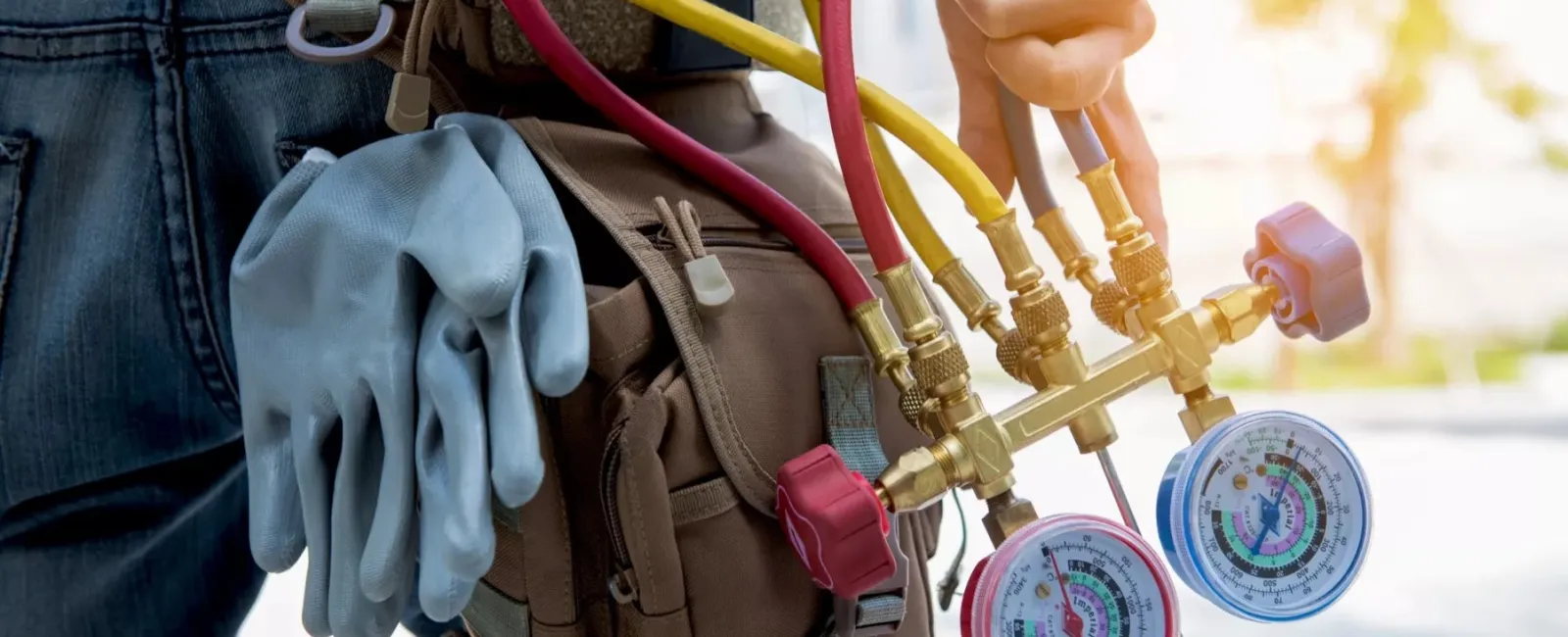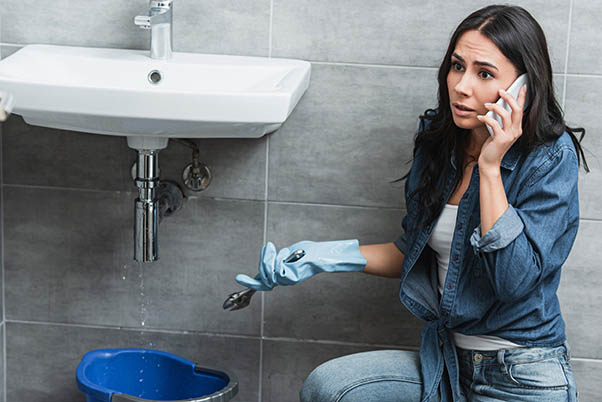Managing Emergency Plumbing Issues: Immediate Tips Until Professional Help Arrives
Managing Emergency Plumbing Issues: Immediate Tips Until Professional Help Arrives
Blog Article
This article underneath involving Expert Tips for Emergency Plumbing Repairs is immensely motivating. Don't miss out on it.

Plumbing emergency situations can strike any time, creating tension and potential damage to your home. Whether it's a ruptured pipeline, a clogged up drainpipe, or a leaky faucet, understanding how to handle the circumstance up until a specialist plumbing professional arrives can save you from further problems. This post supplies essential emergency plumbing suggestions to help you mitigate damage and regain control during a plumbing crisis.
Turn Off the Supply Of Water
The primary step in any kind of plumbing emergency is to turn off the water. For local problems, such as a dripping tap or bathroom, shut off the shutoff near the component. In the case of a significant leakage or burst pipe, situate your home's major water shut-off shutoff and turn it off right away. Knowing the area of these shutoffs in advance can conserve valuable time throughout an emergency situation.
Shut Off Your Hot Water Heater
In specific emergency situations, such as a burst pipe, it's smart to shut off your hot water heater. This avoids getting too hot or damages to the unit when water stops moving. Shut off the power supply to the water heater (electrical or gas) and let it cool down to stay clear of prospective risks.
Briefly Quit a Ruptured Pipeline
A burst pipe can bring about considerable water damage in mins. To reduce the issue:
Call an expert plumber promptly to resolve the problem completely.
Have an Emergency Pipes Kit
Prepare a fundamental plumbing emergency package to deal with small issues successfully. Your package ought to consist of:
Having these devices on hand can make a considerable difference in your capability to take care of emergencies.
Unclog Drains Securely.
A clogged up drain can be an irritating and unpleasant concern. Below's how to tackle it:.
If these techniques don't work, avoid making use of too much pressure, as it might intensify the obstruction.
Manage Overflowing Toilets.
An overruning bathroom can cause immediate disorder. Below's what you ought to do:.
Address Small Leakages with Short-term Fixes.
Tiny leaks can quickly end up being significant troubles if left untreated. Use these momentary fixes till expert aid shows up:.
While these fixes aren't irreversible, they can help lessen water loss and damages.
Deal With Frozen Piping Thoroughly.
In cooler climates, frozen pipes are an usual emergency. If you suspect a frozen pipeline:.
Know When to Call a Specialist.
While quick fixes can aid momentarily, particular pipes problems need instant specialist focus. Call a plumber if:.
Without delay speaking to an expert makes sure the issue is solved properly and stops further difficulties.
Avoid More Damage.
Taking quick activity to decrease damage can conserve you money and time in the long run. Right here's how:.
Conclusion.
Pipes emergency situations can be overwhelming, yet with the right understanding and devices, you can handle the circumstance successfully till help shows up. By switching off the water supply, dealing with small leaks, and utilizing temporary solutions, you can minimize damage and keep your home safe. Bear in mind, these tips are short-term options; constantly get in touch with a licensed plumbing technician to take care of the origin of the trouble. Preparation and quick thinking are your finest allies in any type of pipes emergency situation.
Expert Tips for Emergency Plumbing Repairs
Plumbing emergencies can be incredibly stressful and inconvenient. Whether it’s a burst pipe, a clogged drain, or a leaky faucet, these common plumbing emergencies need immediate attention to prevent further damage to your home. But before you panic, it’s important to understand the basics of plumbing repairs and the steps you can take to address these emergencies. In this article, we will share some expert tips to help you navigate through these situations and minimize potential water damage.
Identifying Common Plumbing Emergencies
Leaky pipes and faucets Clogged drains and toilets Burst pipes Low water pressure Water heater problems Essential Tools for Plumbing Repairs
Plunger: Useful for unclogging toilets and drains Adjustable wrench: Needed for tightening or loosening nuts and bolts Pipe wrench: Ideal for gripping and turning pipes Tape measure: Necessary for accurate pipe measurements Plumber’s tape: Helps create watertight seals Understanding Emergency Plumbing Services
Emergency plumbing services are designed to provide immediate assistance for unexpected plumbing issues that can cause significant damage to your home, business, or health. These services are typically available 24/7 and are staffed by experienced plumbers who can quickly diagnose and repair a wide range of plumbing problems.
When a plumbing emergency strikes, time is of the essence. Whether it’s a burst pipe flooding your basement or a gas leak posing a serious risk, emergency plumbing services ensure that help is just a phone call away. These professionals are equipped with the tools and expertise to handle any situation, minimizing damage and restoring your plumbing system to proper working order.
What Constitutes a Plumbing Emergency?
Burst pipes or water supply lines: These can cause extensive water damage and need immediate repair to prevent flooding. Gas leaks or suspected gas leaks: Gas leaks are extremely dangerous and require prompt attention to avoid potential explosions or health hazards. Sewer backups or overflows: These can lead to unsanitary conditions and significant property damage. Clogged drains or toilets causing water to overflow: Overflowing water can damage floors, walls, and other structures. Leaks or water damage causing structural damage: Persistent leaks can weaken the structural integrity of your home or business. No hot water or heating: A lack of hot water can be more than an inconvenience, especially in colder months. Common Causes of Plumbing Emergencies
Aging or corroded pipes: Over time, pipes can deteriorate, leading to leaks or bursts. Improperly installed or maintained plumbing fixtures: Faulty installations or lack of maintenance can result in unexpected failures. Tree roots or other debris infiltrating your sewer line: Roots can grow into pipes, causing blockages and backups. Frozen pipes or water supply lines: In colder climates, pipes can freeze and burst, leading to significant water damage. High water pressure or sudden changes in water pressure: Excessive pressure can strain pipes and fixtures, causing them to fail. Natural disasters such as floods or earthquakes: These events can disrupt your plumbing system and cause severe damage. Steps to Minimize Water Damage
Locate the water shut-off valve: Knowing where the valve is can help you quickly cut off the water supply to the affected area. Turn off the water heater: If there’s a risk of water coming into contact with the heating element, make sure to turn off the water heater to avoid potential accidents. Open faucets and drain pipes: By opening faucets and drain pipes, you can relieve pressure and empty any standing water. Collect and contain water: Use towels, buckets, or bins to collect water and prevent it from spreading to other areas of your home. https://leecountyplumbingandwellservice.com/expert-tips-for-emergency-plumbing-repairs/

I was shown that report about Expert Tips for Managing a Plumbing Emergency Until Help Arrives from a good friend on our other domain. Sharing is caring. Helping people is fun. We treasure your readership.
Call Today Report this page